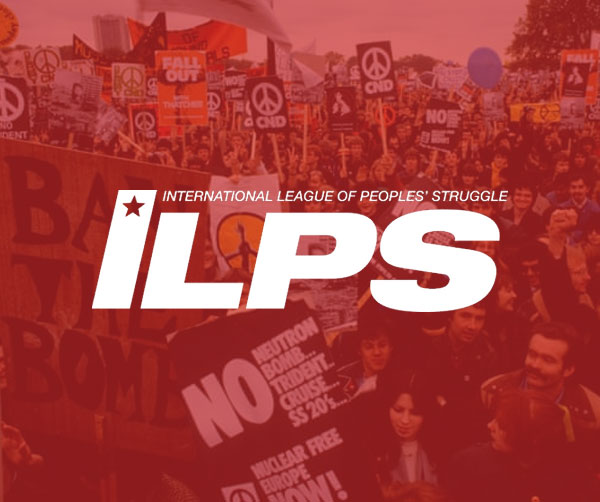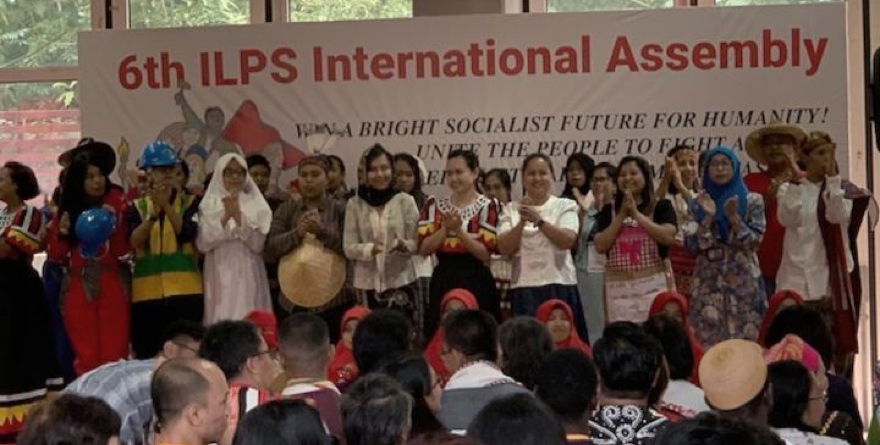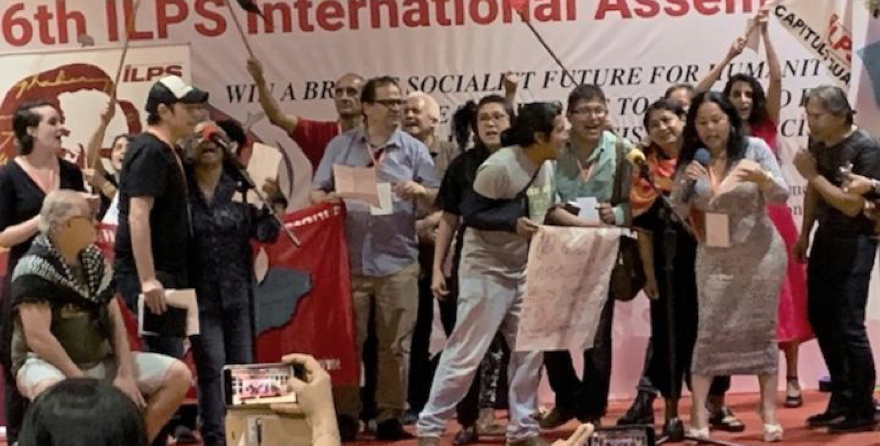Press Communiqué No. 1
19 Nov 2004
The International League of Peoples’ Struggle (ILPS) successfully held its Second International Assembly (SIA) from 11 November to 13 November 2004 in Eindhoven, The Netherlands. The assembly carried the theme, “Advance the people’s solidarity and struggle for liberation and democracy against imperialist plunder and war.”
Two hundred and forty (240) delegates from 33 countries attended the assembly. They represented 136 participating organizations of the ILPS. There were also observers who represented 39 other organizations as well as those who came individually. The participating and observing organizations came from various global regions like Asia, Africa, Latin America, North America, Europe and Oceania.
The delegates and observers arrived on 10 November 2004 and were oriented to the assembly and to their accommodations by the host committee. The turnout was excellent despite the concerted acts of the Dutch and other European governments to deny the visa applications of delegates from the Philippines, Nigeria, Nepal, Pakistan, India and Bangladesh.
In the morning plenary session of 11 November, ILPS chairperson Crispin Beltran formally opened the assembly. Then the general secretary Arman Riazi welcomed the delegates. The general consultant Prof. Jose Maria Sison delivered the keynote speech. He described the global context of imperialist plunder and war and called for people’s solidarity and struggle for liberation and democracy. Chairperson Beltran delivered his report on the ILPS record of struggle in the last three years. Messages of solidarity from various organizations were also read to the assembly.
The steering committee of the assembly was chaired by Prof. Sison and it appointed the presidium. The Rules of Participation, the Rules of Procedure and Rules of Nomination and Election to the International Coordinating Committee were discussed and approved by a majority vote of the assembly. A few amendments of the ILPS charter were deliberated and ratified by two-thirds majority vote.
In two half-day sessions, in the afternoon of 11 November and morning of 12 November, study commissions, workshops, committees and groups were assigned to take up the 18 concerns of the ILPS. They discussed and proposed amendments to the sections pertinent to them in the draft of the SIA General Declaration. They also passed resolutions on more specific and timely issues, including resolutions on Palestine and Iraq.
They made brief reports to the plenary session. The deliberations on the SIA General Declaration began in the afternoon of 12 November and went overtime into the evening and onward into the morning of 13 November. They were frank and lively. The debating delegations stood by their principles but were able to exercise flexibility in arriving at commonly acceptable propositions. All the delegations recognized the importance and seriousness of deliberating on the most important document of the assembly. Upon the ratification of the declaration, the assembly was unanimous that a higher level of unity was achieved through debate.
In the afternoon of 13 November the assembly elected 27 regular members and 8 alternate members of the International Coordinating Committee (ICC). These are leaders and representatives of mass formations in their respective countries. The regular members come from Australia, Austria, Belgium, Brazil, Canada, Hongkong SAR-China, Germany, Greece, India, Indonesia, Iran, The Netherlands, Norway, Pakistan, Palestine, Philippines, Scotland, Spain, Turkey, United Kingdom and the United States. The alternate members come from Canada, Greece, Iraq, Philippines and the United States.
After the closing of the assembly, the newly-elected ICC convened to elect its officers and the delegations held a cultural solidarity night to celebrate the success of the assembly. The SIA General Declaration and other important documents of the assembly shall be posted at the ILPS website ###.
ILPS General Secretariat



